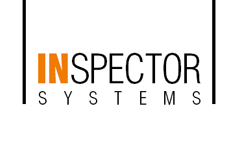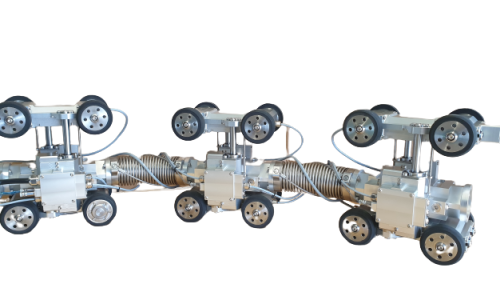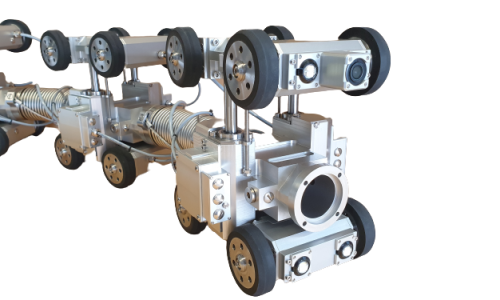Renowned testing companies use INSPECTOR SYSTEMS technology
Technical and economic performance in combination with safety are the top priorities for nuclear power plants. In order to fulfil these criteria in their entirety, responsible operational management, preventive measures and permanent inspection with regard to wear and ageing of the plant components are required. The measures include monitoring, tests, inspections and maintenance, which must be carried out permanently or periodically on the plant components.
Pipework testing plays a special role here because the various pipework systems are among the central components of a nuclear power plant. Following a defined routine, the pipelines and in particular the welded joints are inspected externally for signs of wear using various non-destructive testing methods such as ultrasound, eddy current, X-rays, etc.
For special welded joints, the operators of the French nuclear power plants have decided to carry out various checks on the internal weld surface in addition to the external tests.
For this complex project, INSPECTOR SYSTEMS was commissioned to develop a special robot platform that can travel through several bends and vertical pipe sections within a pipeline (even in wet and slippery conditions). Furthermore, it had to be able to approach the weld seams with pinpoint accuracy in order to precisely position the relevant inspection systems. An additional criterion was the insertion of the robot platform into the pipework through a valve with limited space. This robot platform was then made available to various testing companies, who adapted their testing technology in collaboration with INSPECTOR SYSTEMS.
The developed robot platform has a total of three drive units connected to each other via flexible bellow connections. Each drive unit consists of an aluminum block and two wheel carrier sets, which are pressed pneumatically against the inner wall surface of the pipe. For this special application the drive units were equipped with a powerful all-wheel drive function in order to achieve higher propulsion forces and ensure a more even distribution of the drive forces in the bend area. In combination with the specific geometry and rubber compound of the drive wheels, this ensured optimal propulsion in wet, slippery and vertical pipe sections.
INSPECTOR SYSTEMS has so far developed a total of twelve robot platforms for the 8 to 14-inch diameter range and made them available to the various testing companies.



